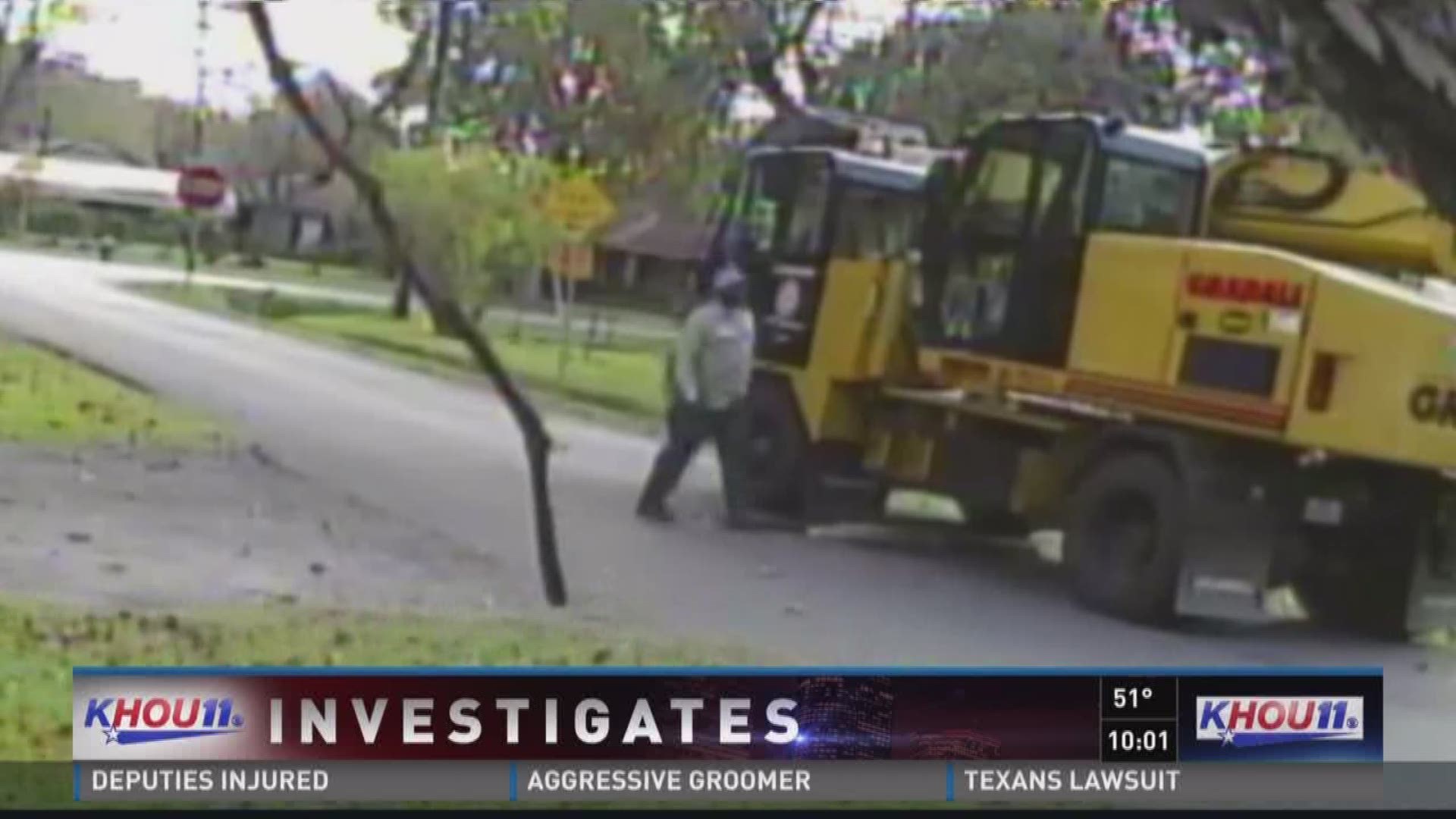KHOU 11 Investigates reviewed thousands of personnel records and found city workers often get a long leash to goof off and screw up, while still earning a paycheck on the taxpayers’ dime.
Homeowner Howard Fortner knows. He arrived home from work one afternoon to find three City of Houston Department of Public Works trucks sitting idle.
"They're obviously hiding for a reason. It's a desolate road,” Fortner said.
Fortner said the city workers likely thought nobody could see them. But they thought wrong. His home security cameras captured it all — nearly four hours of doing nothing.
“If I was in my company truck, and I got caught, I'd be in big trouble,” he said.
But city records reveal the worst trouble the five-man crew received, including the supervisor, was a day off with pay.
"He got a paid day off? A paid day off to go and think about whether he wanted to keep his job or not,” Fortner quipped. “Not an unpaid, but actually paid. Sounds like a nice punishment."
Turns out, the city’s philosophy is “discipline without punishment.” Since March 2015, the City of Houston pattered its policy after the book with the same name. It preaches positive corrective coaching of employees rather than a heavy, punitive hand.
The policy, also known as the “Positive Corrective Action Program,” outlines three formal correction levels depending on the seriousness of the incident.
CoH Positive Corrective Action Program by KHOU on Scribd
For example, employees at BARC, the City of Houston animal shelter, received a “Level II” positive corrective action for leaving stray cats on trucks without food and water for 24 hours or more. In those cases, there were no suspensions or other punitive action other than the equivalent of a 12-month probation period.
The reaction from citizens outside the city animal shelter was surprise and disbelief.
”Oh my gosh, I didn’t know all of this,” said Ducy Gamble.
“I don’t know what to say, but that’s very unfortunate,” added Daisy Resendez.
“It’s inexcusable. I don’t want my tax dollars to be going to something like that,” said David Nuss.
Tax dollars also have been going to sleep on the job. At the City of Houston, catching a nap will not get you suspended, but rather a “positive corrective action,” including one employee who was caught napping twice.
The records review by KHOU 11 Investigates also identified employees with “excessive, unacceptable absenteeism” who still hold a job. Another worker forged his diploma to get a job.
But who didn’t get fired? The Department of Public Works employee arrested for stealing a city vehicle registration sticker for his personal car.
Another employee was caught grocery shopping on the clock, and went so far as to park the city truck in a handicapped spot. His punishment? What’s known as “decision-making leave” — a mandatory day off with pay to allow the worker time to decide if they will return as a productive, rules-abiding employee.
The City issued another “decision-making leave” to Paul Williams, Public Works Inspector, for theft of city property.
Records show Williams illegally connected fire hoses to the hydrant and ran them across the street to fill his 5-foot-deep pool. In a handwritten statement, Williams apologized, but said, “I had no idea what I done was wrong."
When KHOU 11 Investigates tried to speak with Williams outside of his home, he jogged away.
The Director of the Public Works Department, Carol Ellinger Haddock, also didn’t stop to answer questions outside City Hall.
“I don't really have a whole lot to talk to you about," she said.
"When you add all this up it raises the question, ‘What does it take to get fired from the Public Works Department?’” KHOU 11 Investigates reporter Jeremy Rogalski asked.
“So that is a question that really does have to go through our human resources department," Haddock replied.
KHOU 11 Investigates did find several cases where employees were “indefinitely suspended” or terminated for violating random drug tests.
The City's HR Director Jane Cheeks declined an interview request. Instead, she referred us to City policy, based on Discipline Without Punishment.
The book was written by a former Frito Lay executive. The philosophy is used by several public and private companies as well as local governments. Supporters have credited the policy with reducing absenteeism and sick days.

